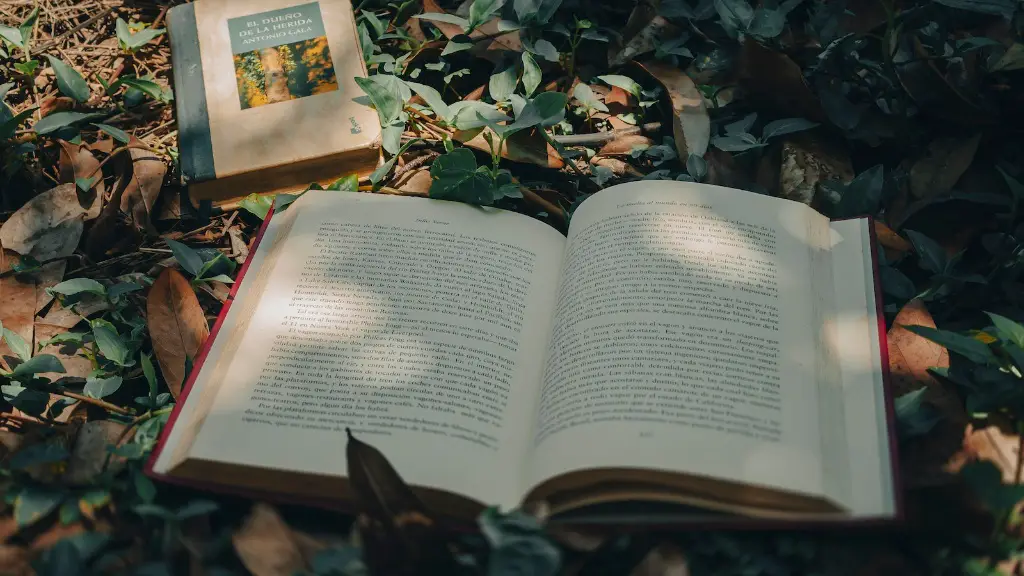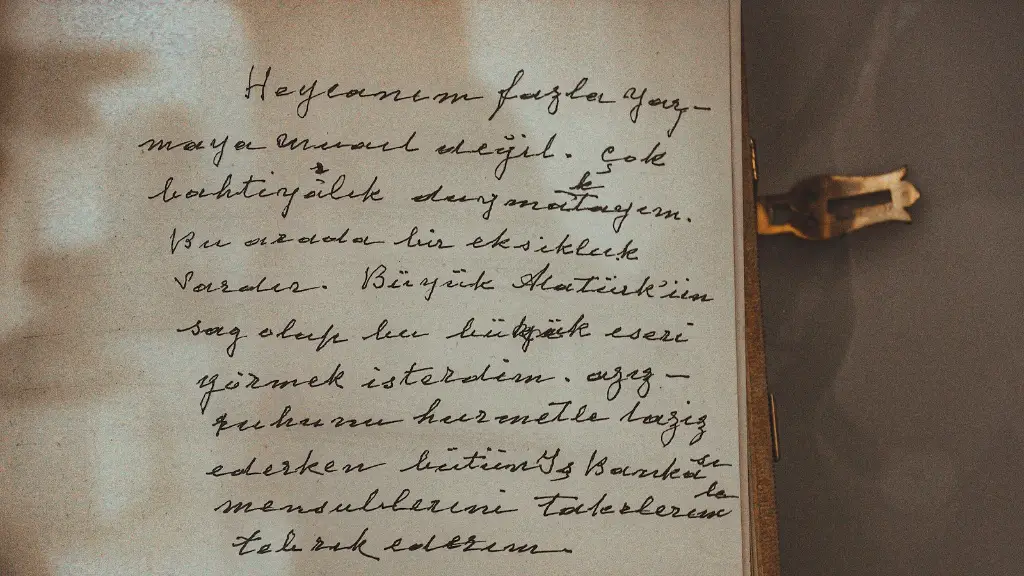Poetry: an ART form
A poem is a literary composition that conveys emotion, conveys the author’s point of view, and often employs figures of speech, rhyme and rhythm to create an atmosphere and perception. Poetry is often considered a form of art, and can be derived from all genres of literature, from romantic to comical, from narrative to lyrical. In a broad sense, poetry is an art form that uses language to create powerful and moving images, thoughts, and experiences.
Poetry is one of the oldest forms of expression and communication. It can be traced back to prehistoric times when oral stories and songs were the only means of passing on knowledge and cultural values. Modern-day poetry has many variations, including rap and spoken word.
Experts such as Victoria Chang, author of children’s books and poetry collections, suggest that the fundamentals of poetry are more than just words. She states that poetry can tap into emotions, capture vivid and metaphorical images, and create a feeling of understanding and connection. It allows the author to “express something much bigger than just the facts” and “puts words to tangible emotions and moments in life”.
In addition, poetry can be used to explain complex topics in simple ways that can be better understood. By using figurative language such as metaphors, hyperboles, and similes, the author can convey complex concepts in a unique, creative way. Poetry may be written in a way that allows readers to interpret it differently, making it a unique form of expression.
The physical composition of the poem is also important. Most often, poems are written with rhyme and meter, which add rhythm and make the poem more enjoyable to read. Using rhyme and meter help create a connection between words and phrases, and can help convey hidden meanings and emotions.
Emotional elements also help make poetry an effective form of communication. Writers use techniques such as imagery and symbolism to evoke strong emotions and provoke thought in a reader. Emotions can be brought to the forefront of a poem through an intense metaphor or a powerful story. These techniques make poetry a wonderful art form for conveying powerful messages, thoughts, and feelings.
Apart from having the potential to express powerful emotions, experts state that poetry can also be based on facts. Poets are usually not confined to specific topics and can choose to write from personal experiences. Consequently, poetry can be used to represent theories and even political positions, making it an effective tool for communication and activism.
Writing Poetry: An ARTISTIC Process
Writing a poem requires creativity and expression, as each poem captured should be unique to the thoughts and emotions of the author. A poem typically begins with a single idea and often develops as the author writes. The writing process is often filled with changes, as the author rearranges words and phrases in an attempt to craft a perfect poem.
A step-by-step guide to creating poems includes:
Step one involves brainstorming a single idea that will be the central message of the poem. The author should begin by writing a few words that relate to the main message and then organically expand outwards from there. The focus should remain on the aim of the poem.
Step two is about immersing yourself in the poem. This involves the author exploring the rich emotions and settings that can be included in the poem. This is the stage for finding voice and expression, as well as exploring potential audience responses.
Step three involves writing out the poem. Once the emotions and imagery have been explored, the author should begin writing out the poem. This can involve experimenting with different poetic devices, such as metaphors, metonymy, and repetition.
Step four is the refinement and editing stage. This involves the author rearranging words, phrases and imagery to create the perfect poem. They should also take time to review the poem in its entirety and look for any typos or unclear elements.
Step five is sharing the poem. Once the poem is complete, the author should share it with others. This can involve publishing the poem online, displaying it at a local gallery, or even performing it in front of an audience.
Appreciating Poetry: A CULTURAL Practice
The appreciation of poetry is a cultural practice, and varies from region to region. It is an important way of conveying values, highlighting current issues and celebrating culture. It is a tradition that binds communities together and allows people to connect with each other.
In some cultures, poetry is closely intertwined with music, and the two forms go hand in hand. The use of music helps to create a deeper connection to the poem, as it provides a rhythm and a melody that complements the words. This allows for a more powerful understanding of the poem and allows the reader to engage more deeply with the piece.
In addition to using music to appreciate poetry, some cultures also incorporate improvisation and performance as part of the tradition. This can involve improvising lines of a poem, and creating a performance that further enhances the poem’s meaning.
Another way of appreciating poetry is through collaborative appreciation. This involves sharing a poem with other members of the community and having a conversation about it. Through the conversation, deeper truths and meanings can be revealed and experienced.
Poetry appreciation can also take the form of competitions. With these, readers and authors compete against each other by submitting their own poems. This allows for a greater appreciation of each poet’s work, as well as a greater appreciation for the genre as a whole.
Finally, poetry appreciation can happen virtually. Through the use of social media platforms, people from around the world can come to appreciate each other’s work and discuss their appreciation in online forums.
Publishing Poetry: A BUSINESS Venture
Publishing poetry is a profitable business, with many poets and authors earning money through royalties and publishing deals. A lot of the major traditional publishing houses offer both fiction and poetry contracts, and some independent poets and authors choose to self publish their poems.
When self-publishing, authors will often first need to establish a platform and create an audience. This usually involves creating a website, maintaining a blog, and marketing their work to a wide audience. An author will also need to decide if they will publish their work themselves, or if they will find a publisher that fits their needs and provide them with a publishing contract.
When choosing a publisher, authors will need to look at options such as royalties, rights to their work and contracts that offer publishing in multiple formats. Authors should also look for a reputable publisher with a solid track record of producing quality publications.
When negotiating a publishing contract, authors will need to understand the rights they have to their work, and they should always read any contracts before signing them. Authors should also consider their career long-term and negotiate a publishing contract that benefits both parties.
Apart from publishing, authors can also earn money through competitions, book tours, book awards and grants. Authors can also explore options such as merchandise, virtual book readings, online courses and online tutoring.
Promoting Poetry: A VITAL TASK
Promoting poetry is an essential task for poets and authors. It is important to get the word out about their work and to build an audience for their poems. A great way to get started on promoting one’s poetry is by sharing it with friends, family and colleagues.
In addition, an author can create social media accounts and post their poems on these platforms. This can help to build awareness about their work and make it easier for potential publishers to find them.
A great way to generate interest in one’s work is to participate in poetry events and festivals. This can involve readings, workshops and lectures in a variety of locations. This can help to build an audience and allow an author to network with other industry professionals.
Authors can also promote their poems through booksellers. Bookstores are a great venue for establishing a presence and building an audience. Authors can attend book signings and meet with fans and industry professionals.
Finally, promotion can also be achieved through online platforms. Many authors use YouTube, podcasting, and other digital platforms to promote their work. There are many tools and tips available online that can help authors reach a wider audience and promote their poems.
Mystery of Poetry: A MYSTICAL Concept
The mystery of poetry is a mystical and powerful concept that has captivated readers for centuries. Poetry is often seen as a means of connecting with a higher power, and is thought of as a mystical language that conveys complex, deeper meanings.
Some experts suggest that poetry is a divine way of expressing the human experience, providing access to a higher level of understanding. In this view, poetry is seen as a pathway to understanding the world, connecting us to the deepest truths and the mysteries of life.
The power of poetry lies in its ability to evoke emotions, thoughts, and feelings in the readers. By using powerful and evocative imagery and language, poets can paint a picture in the reader’s mind, conveying ideas and feelings with unique results.
Poetry also provides a unique form of escapism, allowing readers to explore different worlds and ideas. It is a form of meditation that can help readers achieve clarity and find peace.
Poetry is also often used in spiritual practice and rituals, as some believers see it as a means of connecting with a higher power. Ancient cultures have used poetry as a way of expressing prayer and expressing feelings of awe and admiration.
Finally, poetry can act as a catalyst for healing and transformation. By expressing thoughts and feelings in a poetic way, one can transform pain and sorrow into something more beautiful. Poetry can thus be used to bring about emotional healing and self-realization.
Benefits of Poetry: A DIVINE Gift
The benefits of poetry are varied and vast. Poetry can act as a form of therapy, helping to express thoughts and feelings that are not typically expressed. It can also help create a connection between the writer and the reader, allowing the poet to communicate deeply and honestly.
Poetry is also seen as a creative outlet, allowing writers to express their ideas and feelings without fear. It is a vehicle through which writers can express their thoughts, feelings and emotions in a unique and powerful way.
Poetry can also provide an avenue for political and social discourse. It is often used as a means of conveying political messages and raising awareness about social issues. By using words and images, writers can create powerful messages that can be heard by many.
Finally, it is believed that poetry is a divine gift, one that must be appreciated and used to bring about change. By using poetry, writers can make the world a better place by transforming feelings of fear and despair into feelings of hope and joy.

